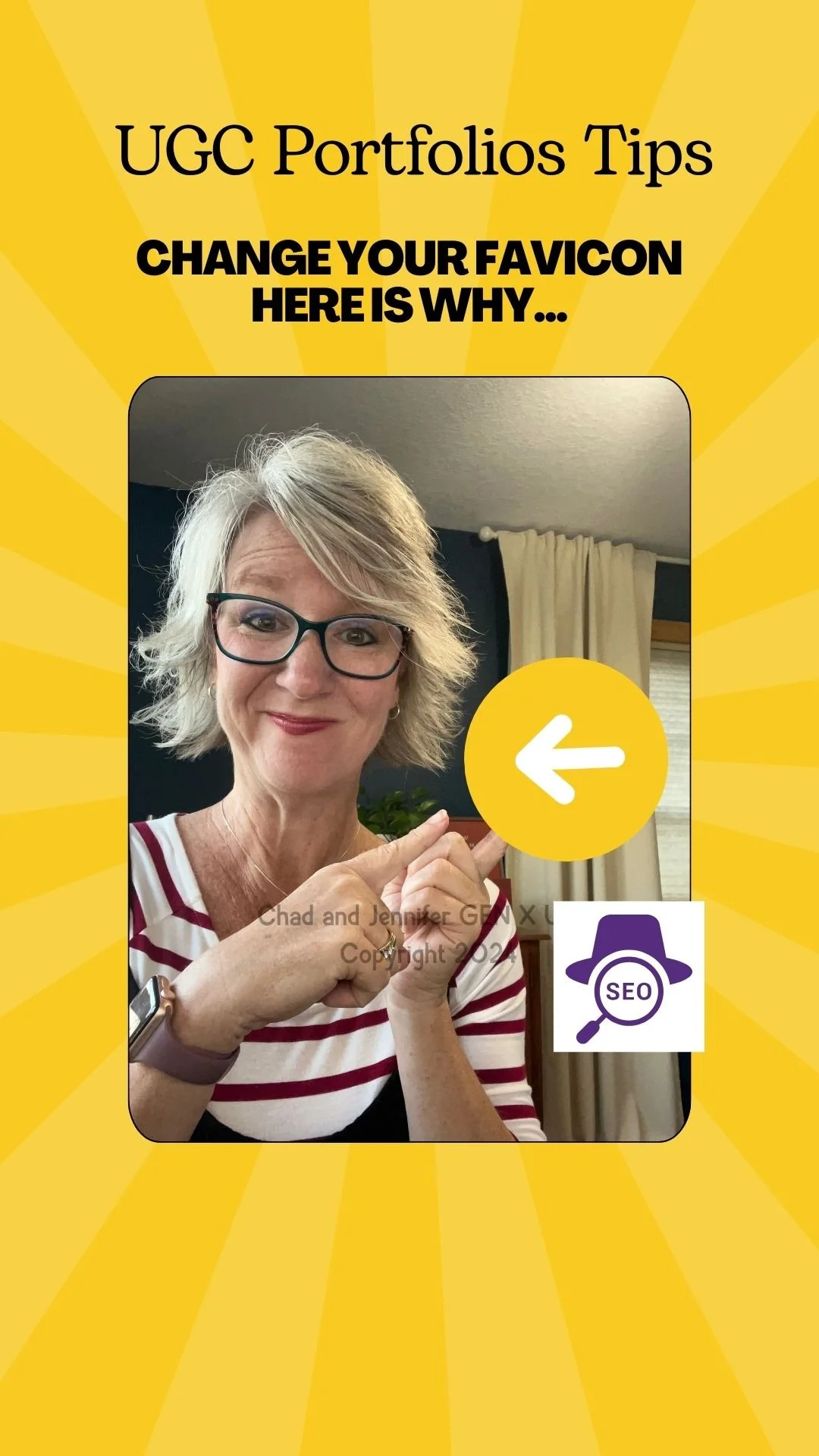Why Your UGC Portfolio Needs a Favicon (And How It Helps You Book More Clients)
Ever notice that tiny icon next to a website's name in your browser tabs? That's a favicon, and if your UGC portfolio doesn't have one, you're missing out on a simple way to look more professional. This little icons matters more than you think.
What's a Favicon Anyway?
Your favicon is sort of like your portfolio's tiny logo. It shows up in browser tabs, bookmarks, and mobile shortcuts. It’s super small – usually just 16x16 or 32x32 pixels – but Google sees it in a BIG way!
Why Your UGC Portfolio Needs One
Stand Out in Crowded Browser Tabs
Let's be real – brand managers and potential clients often have 20+ tabs open while searching for UGC creators. A custom favicon helps them spot your portfolio instantly among all the generic “C” document icons. (I’m looking at you Canva).
Look More Professional
You know what screams "amateur hour"? That blank paper icon next to your site name or that “C” everyone has. A custom favicon shows you pay attention to details – something clients definitely notice when hiring UGC creators.
Better Brand Recognition
When clients bookmark your portfolio (and they will, if your work is good), your favicon becomes a visual shortcut to your personal brand. Make it count.
The Client Psychology Behind Favicons
Brand managers and marketing directors look at dozens of portfolios daily. Here's why favicons matter to them:
Quick visual reference when switching between tabs
Subconscious association with professionalism
Easier portfolio recognition when returning later
Shows attention to detail (crucial for UGC work)
Creating Your Favicon: Keep It Simple
Your favicon doesn't need to be complicated. In fact, simpler is better:
Use your logo if you have one
Your initials in a clean font
A simple icon that represents your niche
A minimal version of your brand mark
Quick Favicon Tips for UGC Creators
Make it readable at tiny sizes
Use bold, simple shapes
Match your brand colors
Test it in dark and light modes
Check how it looks in bookmarks
The Technical Stuff Made Simple
Adding a favicon isn't rocket science. Most website builders (like Carrd, Squarespace, or and yes, even Canva) have simple favicon upload options. Just:
Create your favicon (use a free tool like Favicon.io)
Upload it to your site settings
Test it in different browsers
Done
The Small Details that Make a Big Difference
A favicon is one of those small details that separates the pros from the amateurs in UGC. It takes maybe 15 minutes to create and add one, but it makes your portfolio look infinitely more professional.
Take action: Set a 15-minute timer right now and get your favicon sorted. Your future clients will notice – even if they don't realize they're noticing.
Watch the video below for more info!
